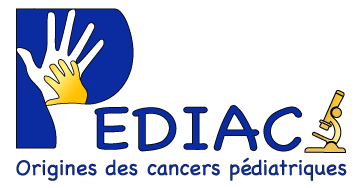research TEAM vahid asnafi
Acute T lymphoblastic leukemia
The Asnafi/Macintyre «Normal and pathological lymphoid differentiation” team is one of the founding members of the “Immunology, Infectiology, Hematology” (I2H) department of the “Institut Necker-Enfants Malades” (INEM), created January 1, 2014 and relocated in the entirely renovated faculty building on the Necker campus in Sept. 2019. The Asnafi/Macintyre team has developed cellular and molecular characterization of lymphoid malignancies, in close collaboration with the clinical cooperative and with fundamental cognitive research groups, in order to ensure optimal human tissue resource management and valorization. All research projects are based on the principle that unravelling oncogenic pathways with an aim to improving treatment requires in-depth understanding of normal development of the system which has undergone deregulated tissue homeostasis.
Hematological malignancies correspond to approximately 8% of adult but 45% of pediatric cancers. Amongst hematological malignancies, immature
(Acute Lymphoblastic Leukemia or ALL) and mature (lymphoma, chronic lymphoproliferative syndromes and myeloma) lymphoid cancers
represent over 75% of adult and 90% of pediatric cases, with the majority involving the B lymphoid lineage. Schematically, it is widely accepted that most cancers result from multistage acquisition of somatic genetic events which
combine a proliferative advantage, loss of programmed cell death and a block to maturation in immature cases. It is likely that these somatic genetic events are preceded by a physiological or pathological signal inducing initially
appropriate but prolonged cell division either as part of normal development (pediatric cancers) or environmental response, such as to infection or autoimmune stimulation for lymphoma development.
Careful delineation of these successive cellular and molecular events will provide the basis for targeted therapy. Being situated on the Necker-Enfants Malades campus, characterized by strong integrated clinical and cognitive
adult and pediatric hemato-immunology and pediatric constitutional genetics, the group has chosen to investigate lymphoid malignancies arrested at all stages of development, with a particular emphasis on the minority (approximately 15%) belonging to the
T cell lineage. Immature Acute Leukemias (AL) in both children and young adults tend to involve genes which mediate developmental regulation, and as such provide the ideal interface with pediatric benign and malignant solid tumors. More mature, lymphoid restricted, tumors represent the malignant end of a continuous spectrum of disorders which extends from reactive lymphoproliferative disorders to dysimmune states to leukemia and lymphoma, and as such, their analysis integrates logically with the Immunology-Hematology-Infectious diseases programs on the Necker campus (eg Sylvain Latour).
A combined cellular and molecular translational research program is based on analysis of optimally annotated clinical material from patients enrolled on prospective institutional multicenter trials, which requires organization of centralized diagnostics on reference platforms. These structures are now established and operational within the integrated Cancer diagnostics (Onco-hematology, Hematopathology and somatic Genetics) and human biological resources (PRB) platforms of the DMU BioPhenGen at Necker (AP-HP Centre university hospital group) for all adult and pediatric leukemias and lymphomas which are the object of the cognitive projects described below, in partnership with the corresponding clinical cooperative groups and allow the team contribution in WP1 and 2.
